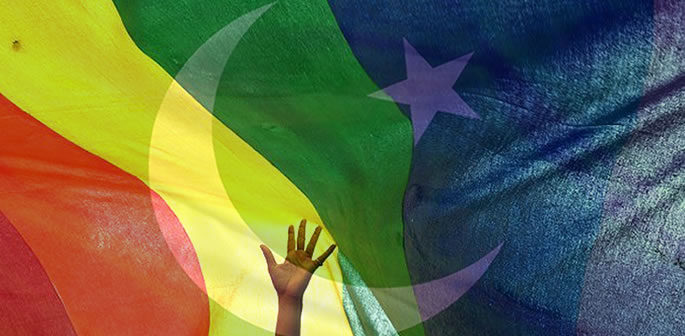"many women reported more domestic violence."
Reports of domestic violence and mental distress among LGBTQ people have increased in Pakistan during the Covid-19 pandemic.
The pandemic has seen many people return to their family homes.
But for LGBTQ people, their lives have been made even more difficult.
The community already faces numerous challenges, which includes systemic oppression, social stigma and a legal ban on homosexual acts.
Activists believe that the increased alienation is negatively affecting mental health within LGBTQ communities.
Mani identifies as a transgender man. His organisation, HOPE, has carried out studies on Covid-19’s impact on his community.
He revealed that more domestic violence cases among gay and transgender partners had been reported during the lockdowns.
Mani explained that financial and emotional stress led to more clashes, especially among transgender women.
Mani said: “Some trans women enjoy having a masculine boyfriend because he can make her feel more feminine and loved, but, during Covid, we saw that many women reported more domestic violence.”
He added that communities had stigmatised themselves to an extent by reinforcing sexual identity as an act of defiance.
Mani continued: “Sex is a natural need, and, because our community is so marginalised, we talk about sex more openly among ourselves, which has stereotyped LGBT people as being more sexual.”
He stated that the stereotype of being hypersexual can also create barriers when finding stable romantic partnerships.
In Pakistan, when family members come out or are found out to be LGBTQ, they face threats of violence and disownment.
As a result, some of them leave their family homes to pursue more freedom.
But during the pandemic, exploration has become increasingly riskier for some.
Usman, of Abbottabad, said that during the pandemic, he has only managed to meet his long-distance boyfriend once every three months.
He said: “My boyfriend is 25 and living with his family in Gujranwala, so he doesn’t have the same freedom to leave his house.
“With the lockdowns and travel restrictions in place, our meetups have become more difficult.”
Although Usman prefers monogamy, he and his partner agreed that they are free to have physical relationships with other men.
This is due to their long-distance relationship.
Such meetings are arranged through social media and dating apps.
But due to the pandemic, Usman says that dating app use and actual meetups have reduced significantly.
During Ramadan, Usman said a lot of men abstained from casual sex and hook-ups, as many gay men see their sexuality as something shameful.
Online dating has also seen some obstacles.
In 2020, Prime Minister Imran Khan banned dating apps like Tinder and Grindr in order to curb “un-Islamic behaviour”.
But users have met for hook-ups through more obscure apps and VPNs.






























































